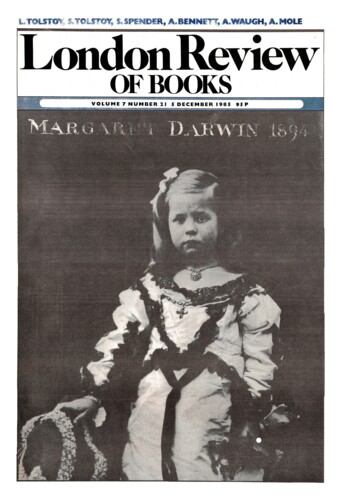Naming of Parts
Patrick Parrinder, 6 June 1985
We name things in order to have power over them; but we must also name them to cower before them in worship. Novelists in particular are aware of the paradoxical magic of naming. To the narrative theorist, stories are made up of simple structural units, like biological cells endlessly replicating: but the novelist, who takes possession of the story by giving names to its narrative agents and formulae, is like Glendower conjuring spirits from the vasty deep but not knowing if they will come at his call. The novel is distinguished from the ancient sagas and epics by the freshness of its specification and nomination, which stamps the author’s signature (but not, in the everyday sense, his ‘personality’) on the narrative. Not only are the names in a novel its recognised trademarks, but each kind of novel embodies a different habit of nomenclature. And where names are bestowed, they may also be artfully concealed or withheld. The greatest of all novels begins with a hero of disputed name in a small village of La Mancha which the author refuses to name.





